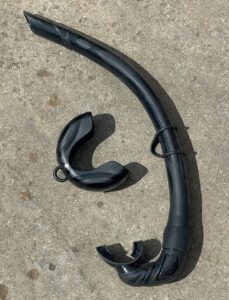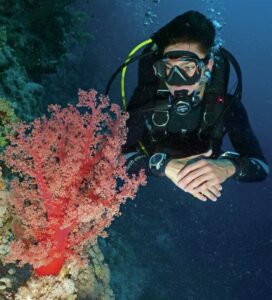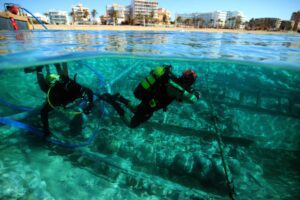Decompression sickness (DCS) is one of the most-common problems reported to Divers Alert Network (DAN), and although scuba diving accidents are rare, it’s important to know how to handle suspected cases of DCS.
What is decompression sickness?
DCS, also known as ‘the bends’, describes a variety of injuries that result from inadequate decompression following exposure to increased pressure. This can occur following uneventful dives within accepted no-decompression limits, but is more likely after dives that involve a rapid underwater ascent. DCS can also be prompted by ascending in an airplane too soon after diving. When there is a rapid decrease in surrounding pressure, nitrogen absorbed by the body at depth comes out of solution, creating bubbles in the bloodstream and/or body tissues. Symptoms of DCS can occur immediately after surfacing, or up to 24 hours later. On average a diver with DCS will experience symptoms between 15 minutes and 12 hours following a dive.
Symptoms of DCS
- Unusual fatigue • Itchy skin • Pain in the joints and/or muscles of the arms, legs or torso
- Dizziness, vertigo and ringing in the ears • Numbness, tingling and paralysis • Shortness of breath
- Signs of DCS
Signs of DCS
• Blotchy rash • Muscle weakness or paralysis • Difficulty urinating • Confusion, personality changes or bizarre behaviour • Staggering • Coughing up bloody, frothy sputum • Collapse or unconsciousness
How to treat a diver with suspected DCS
If a diver is exhibiting symptoms of DCS, emergency oxygen should be provided right away. Next, determine the severity of their condition (emergency, urgent or timely) by following the guidelines below:
Emergency DCS -Adiver who is profoundly dizzy, intermittently conscious, weak, walking with an abnormal gait or having trouble breathing is experiencing a serious medical emergency. Administer 100 percent oxygen and arrange emergency evacuation to the nearest medical facility. Always contact emergency medical services first, then contact DAN. Although a diver with severe DCS requires recompression, it is essential that he or she be stabilised at the nearest medical facility before transportation to a chamber.
Urgent DCS -Adiver experiencing severe pain that is either constant or increasing should be placed on 100 percent oxygen and given fluids. The next step is to contact DAN or the nearest medical facility. Emergency air transportation may not be necessary in all cases. Do not give the diver analgesics (pain relievers) unless advised to do so by medical personnel.
After obtaining professional medical advice, a neurological exam should be conducted. Write down as much information as you can about the diver’s recent diving activity. A neurological exam can be done by anyone; no medical experience or training is required. Ask the diver about any diving activities within the past 48 hours, including depths, times, ascent rates, surface intervals, breathing gas used and any problems experienced during or after the dives.
If time allows, the following additional information may aid medical professionals with diagnosis and treatment:
- Symptom onset times and progression after the diver surfaced from their last dive
- Alist of all first aid measures taken (including times and method of oxygen delivery) and their effect on symptoms
- Adescription of any joint or other musculoskeletal pain including location, intensity and changes based on movement or weight-bearing manoeuvres
- Photos of any rashes with a description of their location
- Information about any traumatic injuries sustained before, during or after the dive
Denial: The worst symptom of DCS
Denial is arguably the worst ‘symptom’ of DCS. Delayed treatment can lead to permanent injury and prolong (or even prevent) the diver’s full recovery. Emergency oxygen can cause symptoms to temporarily improve only to reappear later — it is no substitute for a medical evaluation. Always contact DAN or a medical professional with training in dive medicine in cases of suspected DCS — even if the symptoms and signs appear to have resolved.
DAN 24/7 Emergency Hotlines
Australia: 1800 088 200 | International: +1 919 684 9111
This article was originally published in Scuba Diver ANZ #59.
Subscribe digitally and read more great stories like this from anywhere in the world in a mobile-friendly format. Link to the article








